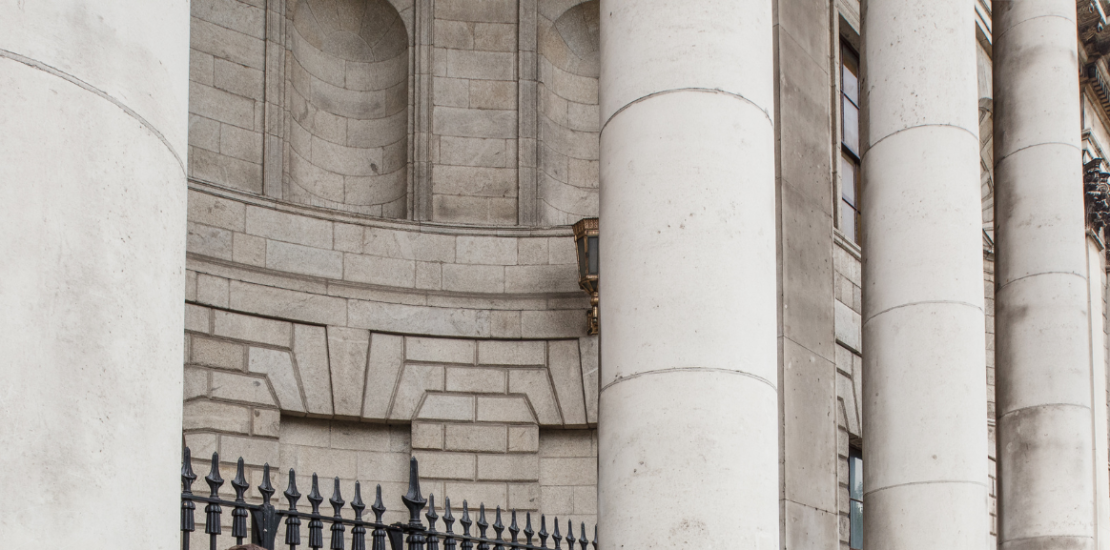- May 11, 2023
- Posted by: Suzanne Dennehy
- Category: News

On 30 March 2023, the Court of Appeal overturned the High Court decision, which had found that the public interest lay in favour of preserving the confidentiality of staff witness statements provided as part of a hospital’s risk management inquiry, which had been sought by the Plaintiffs as part of the Discovery process. Yvonne Joyce, Partner gives an overview of the Judgment.
Summary of Judgment
In the Court of Appeal, Mr. Justice Allen ordered that witness statements made for an inquiry, conducted by the hospital into the death of the Plaintiffs’ baby, should be provided.
In reaching this decision, the Court considered the specific facts of this case, and found:
- The High Court Judge believed that the case raised a significant issue in relation to public interest, specifically that the purpose of the inquiry was to learn from the incident for the benefit of future patients in the hospital and to ensure that those engaging with the inquiry were as open and forthright as possible.
- There was no evidential basis for the debate which occurred in the High Court regarding weight to be given to public interest considerations for a risk management inquiry, as against the disclosure by a hospital of all documents and records relevant to litigation brought against a hospital.
- There was no evidence that the purpose of inquiry was to learn from the incident to benefit future patients, no evidence that the inquiry was clinician lead, and no evidence that it was based on the model contemplated by the HSE incident management framework. In addition, there was no evidence that those who may have engaged with the Inquiry were given an assurance of confidentiality.
- In reality, there was no argument in relation to the relevance of the statements gathered by the inquiry, therefore, under the law, there is a presumption that discovery of the documents was necessary. The onus is then on the requested party to rebut this presumption by establishing first, the fact and then, the nature and extent of the confidentiality. Whether a document is or is not confidential is a matter of fact, to be demonstrated by evidence.
- In determining the legitimacy of a claim of confidentiality, the weight to be attached will depend on the circumstances in which and the purpose for which, the documents came into existence.
Obiter Comments of Mr. Justice Noonan
In his obiter comments, Mr. Justice Noonan made a number of key observations:
- The requirement for a duty of candour or open disclosure over the years has led to the introduction of legislation and ethics policies designed to ensure that when things go wrong, patients have the fullest possible access to information available. He commented that it was somewhat a retrograde position for the Hospital to argue that the statements made by those who treated the baby in this case, should not be disclosed to the parents on the basis that they were given in confidence.
- This argument was based on the assumption that healthcare professionals would be unwilling to comply with their own Governing Bodies ethical policies and standards unless under guarantee of secrecy which he felt would be against the move towards duty of open disclosure.
- even where it is established that statements were given in confidence, this does not necessarily shield them from disclosure. The evidence would have to go very considerably further to rebut the presumption of discoverability.
- In such cases, the Court may for example, have to consider evidence that staff refused to cooperate with an inquiry, absent such a guarantee of confidence and then, whether the public interest or common good could support such an approach or whether it could be regarded as consistent with the proper administration of justice.
- While he noted it was unnecessary to decide this issue today, he indicated that he would disagree with the Trial Judge’s assessment that the public interest in this case lay with preserving the confidentiality of the statements in issue.
Commentary
Based on this decision of the Court of Appeal, it appears that a claim of confidentiality on its own may not be sufficient to withhold discovery of witness statements from a Plaintiff where these statements are made as part of a risk management inquiry and are relevant to the proceedings. Certainly, the Court will examine carefully the factual circumstances in each case before reaching a decision.
The judgment further highlighted that when undertaking an inquiry, the Terms of Reference should set out clearly the purpose of the inquiry and of any correspondence or statements taken from staff and whether such statements are to be treated as confidential.
Currently, there is statutory protection for any information and apology given under the voluntary open disclosure regime[1], with similar protections set out for the mandatory open disclosure regime which will be introduced under the Patient Safety (Notifiable Incidents and Open Disclosure) Bill 2019. Both provide that open disclosure shall not constitute an express or implied admission of fault or liability in relation to the incident and equally that an apology where it is made, does not constitute such an admission.
Ultimately, it will be for the Court to decide the evidential weight to be given to staff witness statements provided as part of a risk management inquiry.
[1] Part 4 of the Civil Liability (Amendment) Act
Our award-winning Healthcare Team is one of the largest specialist Healthcare Teams in the country, with an unsurpassed reputation in the provision of top-class legal services to Healthcare clients. If you have a question in relation to the above article, please contact a member of our Healthcare Team.